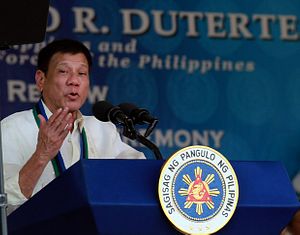The Philippines has turned down bilateral talks with China over the South China Sea dispute following Beijing’s insistence that Manila set aside a landmark tribunal ruling issued last week.
Ahead of the July 12 verdict issued by the arbitral tribunal, the country’s new president, Rodrigo Duterte, had been signaling a shift to a more conciliatory approach toward China, with his administration indicating that it was receptive to talks with Beijing (See: “The Risks of Duterte’s China and South China Sea Policy”). Last week, Duterte had said he would like former Philippine President Fidel Ramos to lead negotiations with China.
Yet just days after the ruling, the prospect of talks between Manila and Beijing appears to have hit a snag. Philippine Foreign Secretary Perfecto Yasay told a local broadcaster in an interview that his Chinese counterpart Wang Yi had wanted talks with the Philippines on condition that the verdict was not mentioned.
“They had asked us also to open ourselves for bilateral negotiations but outside of and in disregard of the arbitration ruling,” Yasay reportedly said.
“I told him that this is something that was not consistent with our constitution and our national interest.”
Yasay said he had met with Wang on the sidelines of the Asia-Europe Meeting (ASEM) in Mongolia, the first major international meeting that he had attended since assuming office as part of Duterte’s cabinet. At the meeting, Yasay said he raised the South China Sea issue despite Beijing’s insistence that it was not an appropriate venue to discuss it.
Yasay added that Wang had said that if the Philippines pursued talks in line with the ruling, Sino-Philippine relations could be heading for confrontation.
“They said that if you will insist on the ruling and discussing it along those lines, then we might be headed for a confrontation,” he said.
In spite of China’s initial approach, Yasay said that he saw room for backdoor negotiations and that he hoped that Beijing would rethink its position.
































